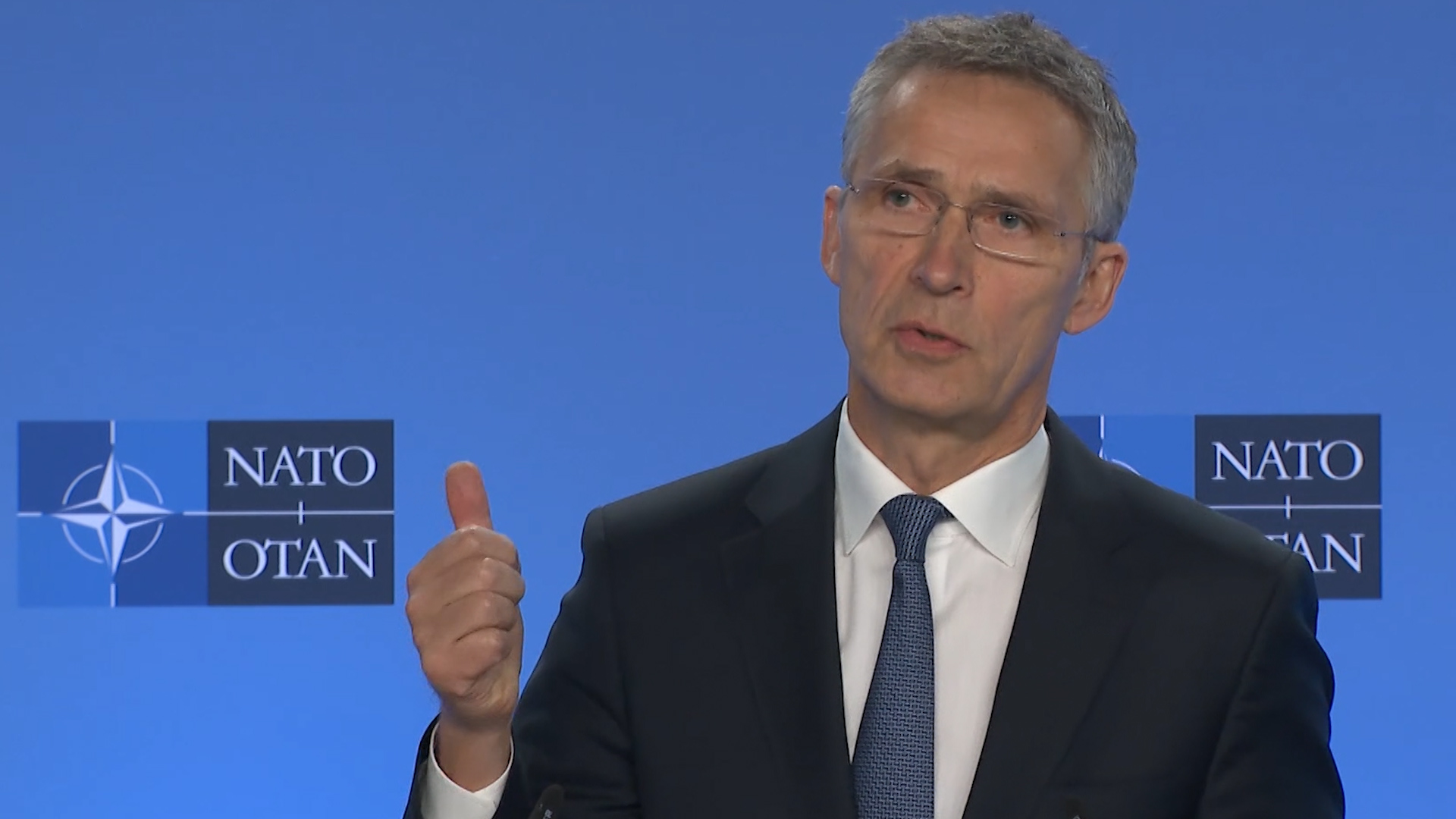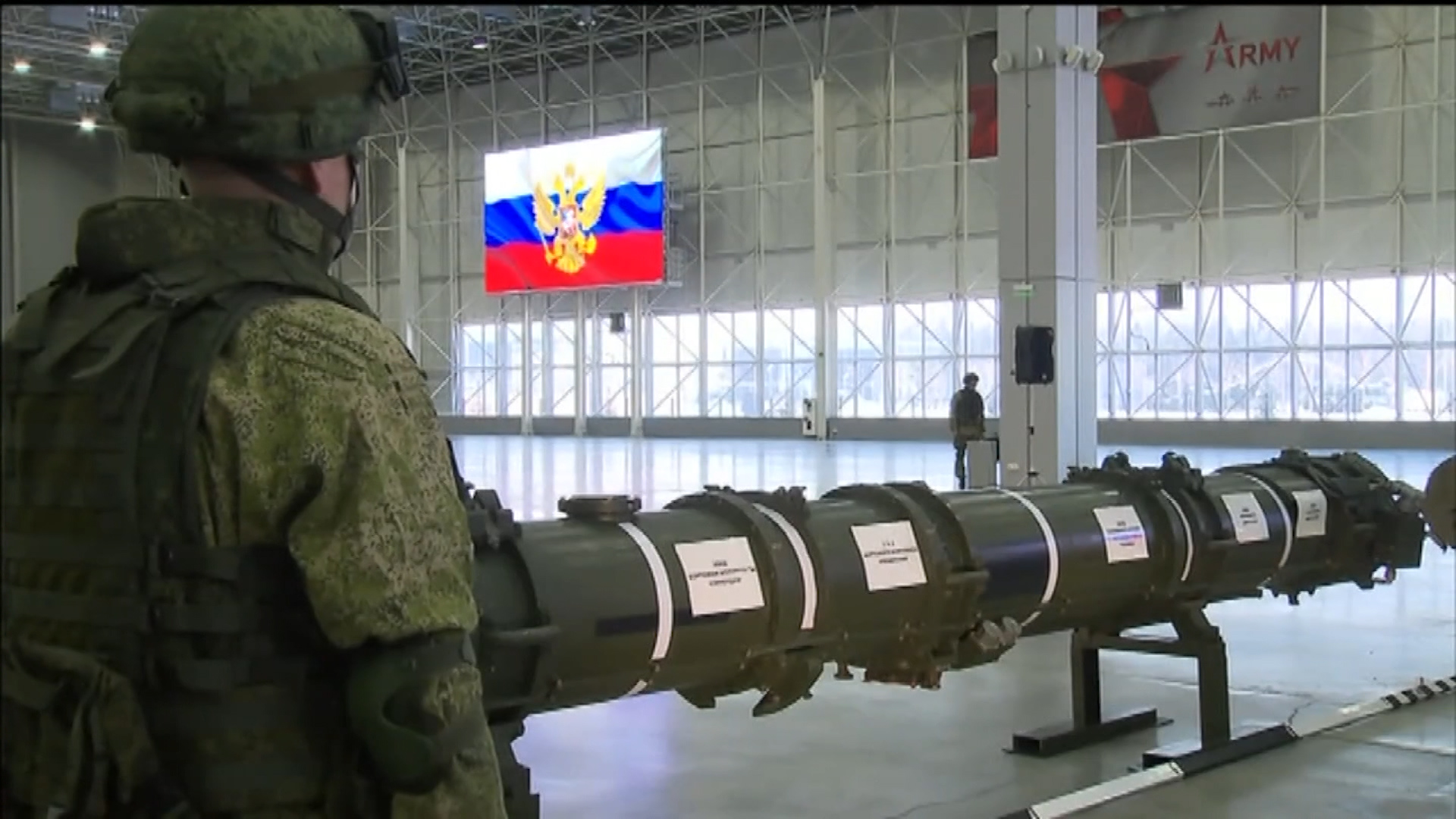
Cold War Missile Treaty "Under Threat" Warns NATO

Jens Stoltenberg after the meeting of the NATO-Russia Council (Picture: NATO TV).
The NATO Secretary General has warned that a Cold War era missile treaty is under threat.
Jens Stoltenberg told a meeting of the NATO-Russia Council that Russia shows no sign of respecting the Intermediate Range Nuclear Forces Treaty that has been in place since 1987.
The INF treaty bans short and intermediate-range nuclear missiles being held or developed.
Speaking at the meeting with brought all 29 NATO allies and Russia together, Mr Stoltenberg said:
"All members of the NATO-Russia council agree that the treaty has been crucial to Euro-Atlantic security."
"But the treaty is now in jeopardy and unfortunately, we have not seen any signs of a breakthrough."
Mr Stoltenberg explained their concerns:
"NATO Foreign Ministers met on this issue in December and all allies agreed that Russia’s SSC-8 system violates the INF Treaty."
"Today, allies urged Russia again to return to full and verifiable compliance with the Treaty. They also expressed firm commitment to supporting and strengthening real and verifiable arms control."

America believes the missile could give Russia the ability to launch a nuclear strike in Europe with little or no notice.
The Kremlin, however, denies accusations that it breaches the INF treaty.
US President Donald Trump is threatening to pull out of the treaty if Russia does not comply.
Mr Stoltenberg said following their meeting that "there was no real progress in the meeting because Russia did not indicate any willingness to change their position.
"But Russia still has an opportunity to come back into compliance, and we call on Russia to use that opportunity.
"The responsibility to preserve the treaty lies on Russia because Russia is now violating the treaty, by developing and deploying new missiles, which are in violation of the treaty.
"These new missiles are hard to detect, they are mobile, they are nuclear capable, they can reach European cities, and they reduce the warning time and thereby also the threshold for any potential use of nuclear weapons in a conflict."
Russia now has six-months to comply with the treaty.









